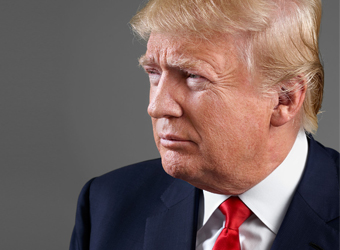President Donald Trump “likely obstructed justice” when he fired FBI Director James Comey and could face impeachment, according to an analysis from the Brookings Institution.
The liberal-leaning think tank released a 108-page report on the issue Tuesday.
In the analysis, Brookings concludes that even though Trump had the authority to fire Comey, he could not do so if the intention was to get in the way of an ongoing investigation.
“Attempts to stop an investigation represent a common form of obstruction. Demanding the loyalty of an individual involved in an investigation, requesting that individual’s help to end the investigation, and then ultimately firing that person to accomplish that goal are the type of acts that have frequently resulted in obstruction convictions,” Brookings analysts Barry Berke, Noah Bookbinder and Norman Eisen wrote.
The analysis concludes that if special counsel Robert Mueller comes to the same conclusion, legitimate articles of impeachment could be drawn up.
Mueller is investigating whether the Trump presidential campaign may have colluded with the Russian government to influence the 2016 election.
The White House did not respond to a request for comment.
The Brookings paper does not contain an outright recommendation for impeachment but says that will be a viable option should Mueller conclude that Trump obstructed justice.
Public statements have indicated that while Trump never specifically instructed Comey to drop the Russia investigation, he did express “hope” that it would end. Trump fired Comey in early May.
The authors say that while the president has the authority to fire the FBI chief, the reasons behind doing so are important.
“The fact that the president has lawful authority to take a particular course of action does not immunize him if he takes that action with the unlawful intent of obstructing a proceeding for an improper purpose,” they wrote. “There is already evidence that his acts may have been done with an improper intent to prevent the investigation from uncovering damaging information about Trump, his campaign, his family, or his top aides.”
Should Mueller find that Trump did indeed obstruct justice, he either could refer the issue to Congress, as was done with the Nixon-Watergate scandal, or pursue an indictment against Trump and prosecute, according to the report.
Articles of impeachment against former presidents Richard Nixon, who ultimately resigned to avoid impeachment, and Bill Clinton, who was impeached but not convicted, “show that obstruction, conspiracy, and conviction of a federal crime have previously been considered by Congress to be valid reasons to remove a duly elected president from office.” Source: CNBC
Source: CNBC
